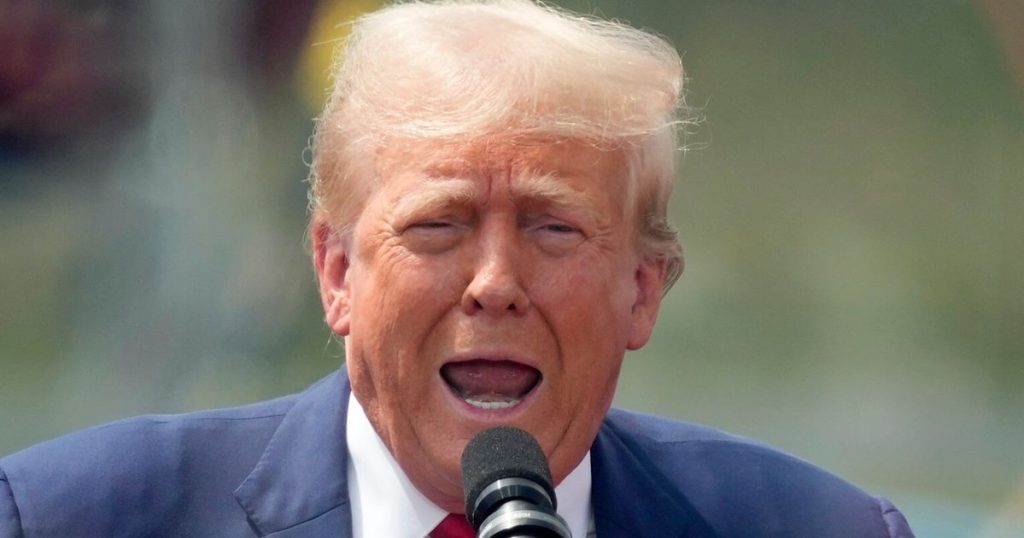Former President Donald Trump recently took to social media to criticize Pennsylvania Governor Josh Shapiro for not being a strong enough supporter of Israel. Trump claimed that Shapiro, a Democratic politician, has done nothing for Israel and never will, insinuating that he is not a friend of the Jewish people. Trump also asserted that he has done more for Israel than any other president or person, and accused Vice President Kamala Harris of harboring hostility towards Israel and wishing for its failure.
The controversial comments from Trump were made on his new social media platform, Truth Social, and quickly sparked backlash from critics who accused him of espousing antisemitic views. While Shapiro, as the governor of Pennsylvania, does not have a direct role in foreign policy, Trump’s attacks on him seem to be driven by political motivations. Trump’s claims of being the best friend of Israel and the Jewish people have been met with skepticism, as he has faced criticism in the past for his handling of Israeli-Palestinian relations during his time in office.
Trump’s assertion that Vice President Kamala Harris “hates Israel” and wants it to fail has been widely denounced as an unfounded and inflammatory statement. Harris, on the other hand, has publicly expressed support for Israel’s security and right to defend itself, while also advocating for a peaceful resolution to the Israeli-Palestinian conflict. The allegations made by Trump against Harris are seen as part of a pattern of divisive and controversial remarks that have characterized his political discourse.
Critics of Trump have raised concerns about the implications of his rhetoric, particularly in relation to the rise of antisemitism and Islamophobia in recent years. His accusations against Shapiro and Harris are seen as feeding into harmful stereotypes and conspiracy theories that target Jewish and Muslim communities. The use of social media platforms to spread such divisive and inflammatory messages has also sparked broader debates about the role of these platforms in shaping public discourse and political narratives.
The controversy surrounding Trump’s comments on Israel and antisemitism highlights the ongoing challenges of addressing hate speech and bigotry in public discourse. While political disagreements are to be expected in a democratic society, the use of inflammatory and divisive language by public figures can have serious consequences for social cohesion and community relations. As debates about Israel and the Middle East continue to be highly charged and polarizing, it is important for leaders to demonstrate a commitment to respectful dialogue and inclusive decision-making processes.
In conclusion, Trump’s recent comments on social media targeting Governor Josh Shapiro and Vice President Kamala Harris for their alleged views on Israel have reignited debates about antisemitism, Islamophobia, and political discourse. The accusations made by Trump have been widely criticized for being unfounded and divisive, and have raised concerns about the impact of such rhetoric on social harmony and community relations. As political leaders continue to engage in debates about foreign policy and international relations, it is important for them to approach these discussions with sensitivity, respect, and a commitment to promoting peace and mutual understanding.








